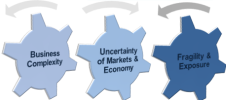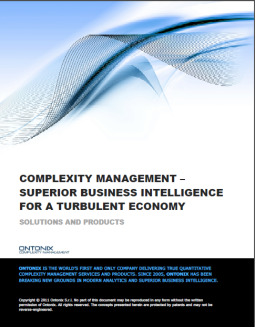Ontonix: "Optimal does NOT mean best"
Tuesday, 18 September, 2012 Leave a comment
Nowadays it is very popular to seek optimal solutions to a broad spectrum of problems: portfolios, engineering systems, strategies, traffic systems, distribution channels, networks, policies, etc. But have you ever wondered if optimal really means best? Well, it does not. Optimality is not the most convenient state in which to function. The reason?
Optimal solutions are inherently fragile.
Our economy (but not only) is fragile because everything we do is focused on maximizing something (profits, performance, success) while minimizing something else (risk, time, investment, R&D) at the same time. This leads to strains within the system. Everything is stretched to the limit (or as much as physics will allow). This is exactly what one should not do when facing turbulence. The focus should, instead, be on:
- Solutions that are fit, not optimal.
- Simplifying business models and strategies.
- Accepting compromises not seeking perfection. Improve, don’t optimise.
Read the full article: Ontonix – Complex Systems Management, Business Risk Management.














